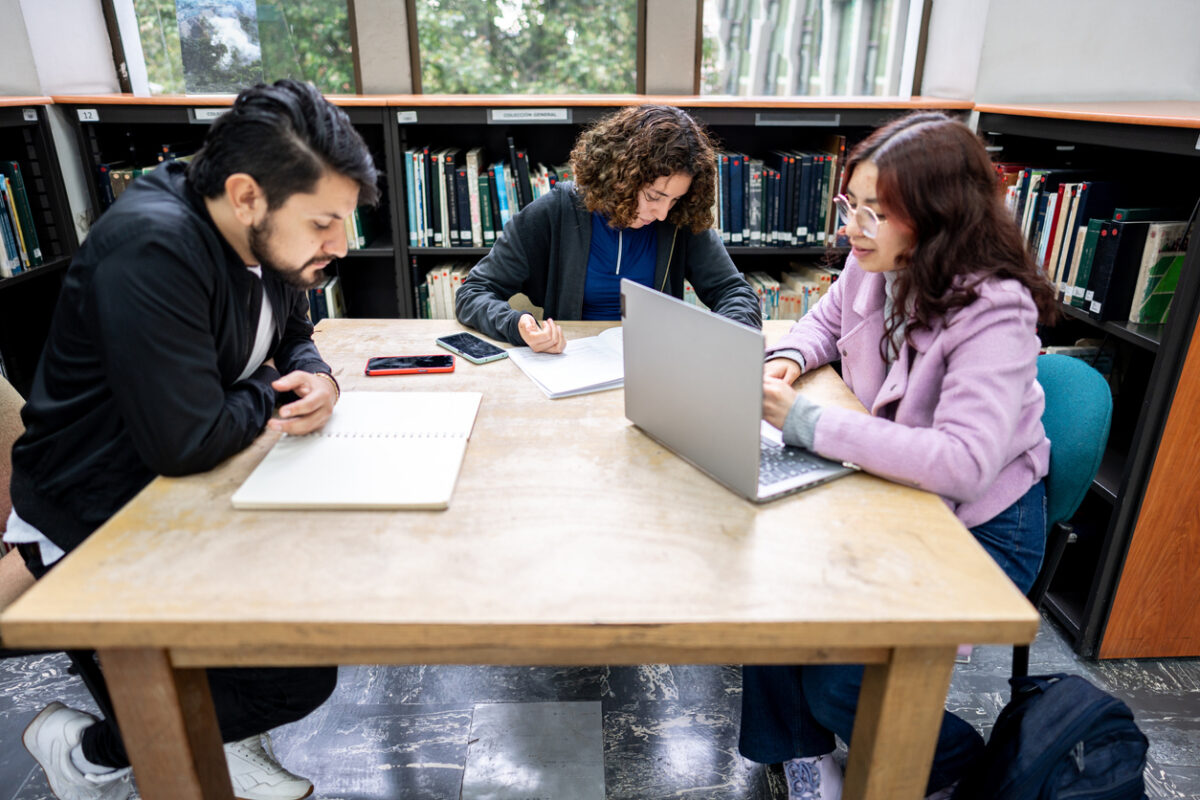MSIs Uniquely Positioned to Develop and Implement Strategies to Assist Underprepared Students
Published May 13, 2014
Washington, D.C., Nov. 30, 2012—With so many students not being properly prepared for the demands of college and requiring some form of remedial intervention, many postsecondary institutions are seeking new strategies for enhancing remedial education. A new policy brief released today by the Institute for Higher Education Policy (IHEP), Rethinking Remedial Education: The Role of MSIs in Serving Underprepared Students in the 21st Century, illustrates how Minority-Serving Institutions (MSIs) from the Lumina MSI-Models of Success program are identifying new ways to better structure their remedial education programs and build stronger cross-system collaborations.
This brief highlights institutions that have taken a more comprehensive and holistic approach to remedial education. The examples provided from participating institutions can be applied to almost any institution seeking to help students avoid or accelerate through remedial education courses. Faculty engagement and institutional collaborations have been central to the work of improving instruction and delivery for students needing remediation. Also, efforts to revamp placement systems and student services have been explored by participating institutions. For example:
- California State University, Monterey Bay partnered with Cabrillo College and Hartnell College to create the Collaborative Alliance for Postsecondary Success (CAPS). CAPS has brought together about 10 faculty representatives from each campus to regularly exchange best practices and collectively develop innovative courses for students enrolled in remedial math and writing. Today, with a renewed energy and commitment to improving practice among these institutions, faculty members across projects have seen the positive results from how faculty development, specifically when considering the needs of underprepared students, improves pedagogical approaches and advances student engagement.
- Montana’s Salish Kootenai College (SKC) partnered with fellow Tribal College and University, Fort Peck Community College, to conduct an action research to identify the factors that contribute to the retention and success of American Indian postsecondary students who required remedial coursework in mathematics and English. Based on the results of their research, SKC modified its placement process to ensure students would be enrolled in the correct academic and support courses. Proper identification and subsequent placement of students in need of remedial education have led to an increase in successful completion of remedial courses and better placement overall of students at SKC and Fort Peck Community College.
“As our nation’s postsecondary institutions enroll more Americans, we must ensure that the necessary academic and support structures are available to facilitate success and increase degree completion,” said IHEP President Michelle Asha Cooper, Ph.D. “Several MSIs have maintained their commitment to underserved students, providing the necessary instruction and support services, including remedial education, that can facilitate success and increase degree completion.”
The Lumina MSI-Models of Success initiative focuses on ways to meet national college completion goals, especially for first-generation students, low-income students, and students of color. The three-year initiative embraces a collective MSI success agenda and has five objectives:
- To improve the capacity of MSIs to collect, analyze, and use data to inform decisions that will promote student success;
- To create a collective voice for policy advocacy on behalf of MSIs;
- To strengthen policy and practice to improve developmental education;
- To increase MSIs' commitment to transparency and effectiveness in improving student learning outcomes; and
- To increase the postsecondary completion of traditionally underserved students, especially men of color.
As the key intermediary for the initiative, IHEP is providing support and dissemination of the project findings to inform the higher education success policy agenda at the federal, state, and institutional levels.
The Lumina MSI-Models of Success grantees are:
- American Indian Higher Education Consortium
- California State University-Monterey Bay
- Florida International University
- Jackson State University
- Salish Kootenai College
- Southern Education Foundation
- University of North Carolina System
- University of Texas-El Paso
For more information about the Lumina MSI-Models of Success program or to download a free copy of Rethinking Remedial Education: The Role of MSIs in Serving Underprepared Students in the 21st Century, visit IHEP’s website at www.ihep.org.


